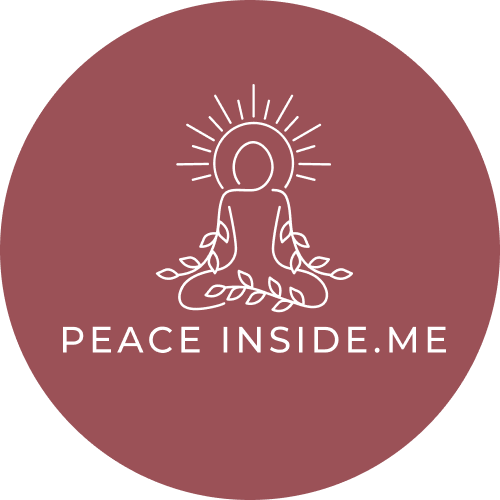peaceinside.me
Sober Curiosity: Exploring a Life Without Alcohol
Please note, this post is partially or fully sponsored and may contain affiliate links.
Alcohol plays a major role in many cultures, celebrations, and social events. For some, it’s a way to unwind after a long day or connect with friends. But more people are starting to ask, “What would my life look like without alcohol?” This growing movement is called sober curiosity—a mindful approach to drinking that focuses on awareness, health, and emotional well-being.
You don’t have to hit rock bottom to question your relationship with alcohol. Sober curiosity invites you to reflect, explore, and discover new ways to live with intention.
What Is Sober Curiosity?
Sober curiosity means choosing to question your drinking habits without necessarily labeling yourself as an alcoholic or committing to lifelong abstinence. It’s about paying attention to how alcohol affects your mind, body, relationships, and goals.
This movement gained traction through books like Sober Curious by Ruby Warrington and the rise of online communities promoting alcohol-free lifestyles.
Unlike traditional recovery programs, sober curiosity doesn’t require a specific diagnosis or identity. Instead, it’s a lifestyle choice rooted in self-awareness and personal growth.
You don’t have to hit rock bottom to question your relationship with alcohol. Sober curiosity invites you to reflect, explore, and discover new ways to live with intention.
What Is Sober Curiosity?
Sober curiosity means choosing to question your drinking habits without necessarily labeling yourself as an alcoholic or committing to lifelong abstinence. It’s about paying attention to how alcohol affects your mind, body, relationships, and goals.
This movement gained traction through books like Sober Curious by Ruby Warrington and the rise of online communities promoting alcohol-free lifestyles.
Unlike traditional recovery programs, sober curiosity doesn’t require a specific diagnosis or identity. Instead, it’s a lifestyle choice rooted in self-awareness and personal growth.

Why People Are Choosing a Sober-Curious Life
There are many reasons why people explore sobriety—even if they’ve never had a “problem” with drinking. Some of the most common include:
1. Improved Mental Health
Alcohol is a depressant. While it may feel relaxing in the moment, it can worsen anxiety, disrupt sleep, and lower mood the next day.
A 2021 study published in Canadian Medical Association Journal found that quitting alcohol led to improved mental well-being, even for moderate drinkers CMAJ, 2021.
2. Better Physical Health
Drinking less can lead to better sleep, increased energy, improved digestion, and lower risk for chronic diseases. Reducing alcohol intake can also help with weight management.
3. More Authentic Social Connections
Many people drink to feel more social. But with time, sober-curious individuals often find that genuine connection doesn’t require alcohol. In fact, conversations often become deeper and more meaningful when you're fully present.
4. Clearer Thinking and Focus
Without the mental fog that often follows a night of drinking, people report sharper focus, more motivation, and better decision-making.
Breaking the Myths About Alcohol
Myth 1: You have to hit rock bottom to stop drinking.
Truth: Anyone can evaluate their relationship with alcohol—no dramatic crash needed. You’re allowed to grow and change simply because you want to feel better.
Myth 2: You’ll be boring without alcohol.
Truth: Many sober-curious people find they have more fun when they’re not hungover or worrying about what they said or did. Being present and energetic often leads to deeper enjoyment.
Myth 3: Only alcoholics avoid drinking.
Truth: Sober curiosity is not about labels. It’s about living intentionally and making choices that support your mental and emotional health.
There are many reasons why people explore sobriety—even if they’ve never had a “problem” with drinking. Some of the most common include:
1. Improved Mental Health
Alcohol is a depressant. While it may feel relaxing in the moment, it can worsen anxiety, disrupt sleep, and lower mood the next day.
A 2021 study published in Canadian Medical Association Journal found that quitting alcohol led to improved mental well-being, even for moderate drinkers CMAJ, 2021.
2. Better Physical Health
Drinking less can lead to better sleep, increased energy, improved digestion, and lower risk for chronic diseases. Reducing alcohol intake can also help with weight management.
3. More Authentic Social Connections
Many people drink to feel more social. But with time, sober-curious individuals often find that genuine connection doesn’t require alcohol. In fact, conversations often become deeper and more meaningful when you're fully present.
4. Clearer Thinking and Focus
Without the mental fog that often follows a night of drinking, people report sharper focus, more motivation, and better decision-making.
Breaking the Myths About Alcohol
Myth 1: You have to hit rock bottom to stop drinking.
Truth: Anyone can evaluate their relationship with alcohol—no dramatic crash needed. You’re allowed to grow and change simply because you want to feel better.
Myth 2: You’ll be boring without alcohol.
Truth: Many sober-curious people find they have more fun when they’re not hungover or worrying about what they said or did. Being present and energetic often leads to deeper enjoyment.
Myth 3: Only alcoholics avoid drinking.
Truth: Sober curiosity is not about labels. It’s about living intentionally and making choices that support your mental and emotional health.

What Happens When You Stop Drinking?
Here’s what many people report after reducing or stopping alcohol:
According to the UK’s Alcohol Change organization, 70% of participants in “Dry January” reported better sleep and 66% had more energy by the end of the month Alcohol Change UK, 2023.
Tips for Exploring a Sober-Curious Lifestyle
If you’re ready to explore a life with less (or no) alcohol, here are some gentle steps to begin:
1. Reflect on Your “Why”
Ask yourself:
2. Try a Short Break
Start small. Take a week or a month off drinking and observe how you feel. Apps like Reframe or Try Dry can help track your progress.
3. Find Alternatives
Explore alcohol-free drinks like sparkling water, herbal teas, kombucha, or mocktails. The alcohol-free beverage industry is booming, offering creative and tasty options.
4. Reimagine Social Events
Plan activities where alcohol isn’t the focus: morning hikes, art classes, book clubs, or game nights. Surround yourself with people who respect your choice—not question it.
5. Build a Support System
Join sober-curious communities online or in-person. Groups like Sober Girl Society, The Luckiest Club, and Club Soda offer connection, inspiration, and accountability.
Here’s what many people report after reducing or stopping alcohol:
- Within 1 week: Better sleep and hydration
- After 1 month: Improved skin, mood, and energy
- After 3 months: Weight loss, more stable emotions, lower blood pressure
- Long-term: Stronger relationships, better focus, and increased self-confidence
According to the UK’s Alcohol Change organization, 70% of participants in “Dry January” reported better sleep and 66% had more energy by the end of the month Alcohol Change UK, 2023.
Tips for Exploring a Sober-Curious Lifestyle
If you’re ready to explore a life with less (or no) alcohol, here are some gentle steps to begin:
1. Reflect on Your “Why”
Ask yourself:
- Why do I drink?
- How does alcohol make me feel—during and after?
- What would I gain by drinking less?
2. Try a Short Break
Start small. Take a week or a month off drinking and observe how you feel. Apps like Reframe or Try Dry can help track your progress.
3. Find Alternatives
Explore alcohol-free drinks like sparkling water, herbal teas, kombucha, or mocktails. The alcohol-free beverage industry is booming, offering creative and tasty options.
4. Reimagine Social Events
Plan activities where alcohol isn’t the focus: morning hikes, art classes, book clubs, or game nights. Surround yourself with people who respect your choice—not question it.
5. Build a Support System
Join sober-curious communities online or in-person. Groups like Sober Girl Society, The Luckiest Club, and Club Soda offer connection, inspiration, and accountability.

How to Handle Social Pressure
It’s common to feel awkward or judged when you start turning down drinks, especially if alcohol is a big part of your social circle.
Here are some kind, confident ways to say no:
What If You Struggle to Cut Back?
If reducing alcohol feels harder than expected, you’re not alone. Sometimes, sober curiosity uncovers deeper patterns or emotional dependence on alcohol.
In that case, seeking support from a therapist, recovery coach, or 12-step program can be a life-changing step. There is no shame in needing help. According to NIAAA, more than 14 million U.S. adults have an alcohol use disorder, but only about 10% receive treatment NIAAA, 2023. Remember: sober curiosity is not a test you pass or fail—it’s a journey toward self-awareness.
It’s common to feel awkward or judged when you start turning down drinks, especially if alcohol is a big part of your social circle.
Here are some kind, confident ways to say no:
- “I’m just taking a break right now.”
- “I feel better without it.”
- “I’ve got an early morning tomorrow.”
- “No thanks, I’m trying something different.”
What If You Struggle to Cut Back?
If reducing alcohol feels harder than expected, you’re not alone. Sometimes, sober curiosity uncovers deeper patterns or emotional dependence on alcohol.
In that case, seeking support from a therapist, recovery coach, or 12-step program can be a life-changing step. There is no shame in needing help. According to NIAAA, more than 14 million U.S. adults have an alcohol use disorder, but only about 10% receive treatment NIAAA, 2023. Remember: sober curiosity is not a test you pass or fail—it’s a journey toward self-awareness.
Final Thoughts
Sober curiosity isn’t about judgment or perfection. It’s about tuning in, asking questions, and choosing what feels right for your body, mind, and spirit.
Whether you cut back, quit entirely, or simply become more mindful, every step you take brings you closer to your most authentic self.
In a world that often encourages escape, choosing presence is a radical act of self-love.
References
Sober curiosity isn’t about judgment or perfection. It’s about tuning in, asking questions, and choosing what feels right for your body, mind, and spirit.
Whether you cut back, quit entirely, or simply become more mindful, every step you take brings you closer to your most authentic self.
In a world that often encourages escape, choosing presence is a radical act of self-love.
References
- Canadian Medical Association Journal. (2021). “Quit alcohol, improve mental health.” https://www.cmaj.ca/content/193/19/E693
- Alcohol Change UK. (2023). Dry January Impact Report. https://alcoholchange.org.uk
- National Institute on Alcohol Abuse and Alcoholism (NIAAA). (2023). Alcohol Facts and Statistics. https://www.niaaa.nih.gov
~
See a typo or inaccuracy? Let us know so we can fix it!
Sharing is caring ❤️
~
~
~
BECOME A PEACE INSIDER
Sign up for peaceinside.me information, inspiration, and specials.



